Are you looking to establish a meaningful Corporate Social Responsibility (CSR) partnership? Such collaboration can not only enhance your brand's reputation but also create a lasting positive impact on the community. It's a wonderful opportunity to align your business values with social good, demonstrating your commitment to sustainability and social change. Curious to learn how to draft a compelling CSR partnership agreement? Let's dive deeper into creating the perfect letter template!

Purpose and Objectives
A Corporate Social Responsibility (CSR) partnership agreement seeks to establish a mutually beneficial relationship between businesses and non-profit organizations. The primary purpose involves aligning business strategies with social impact, emphasizing community engagement, sustainability, and ethical practices. Key objectives include increasing awareness of social issues, such as poverty alleviation or education enhancement, through collaborative initiatives. The partnership may also aim to develop specific projects, providing measurable outcomes like improved literacy rates or reduced carbon footprints in targeted communities. Successful implementation relies on clear performance metrics and ongoing evaluation processes to ensure accountability and progress.
Roles and Responsibilities
The Corporate Social Responsibility (CSR) partnership agreement outlines distinct roles and responsibilities shared between the corporate entity and the non-profit organization involved in community development initiatives. The corporate partner, typically a business aiming to improve its social impact, commits to providing financial support, employee volunteer programs, and resources such as office space or technological infrastructure to bolster initiatives related to education, environmental sustainability, or public health. The non-profit organization undertakes project execution, engaging local stakeholders, and providing expertise in program development and evaluation. Both parties mutually agree to establish benchmarks for reporting outcomes, maintaining transparency through quarterly progress reports, sharing data on community impact metrics, and coordinating efforts for community outreach events across designated regions, such as urban areas or rural communities. Regular communication is established through monthly meetings to review progress and reassess project goals, ensuring alignment with overarching mission statements and community needs. This partnership aims not only for immediate impact but long-term sustainability, fostering an ecosystem of cooperation and shared responsibility.
Communication and Reporting
Communication strategies in Corporate Social Responsibility (CSR) partnerships require transparency and collaboration between organizations. Monthly progress reports can detail project milestones, community engagement initiatives, and financial expenditures. Quarterly meetings in various locations, such as New York City and San Francisco, facilitate face-to-face dialogue, encourage feedback, and strengthen relationships between organizations. Digital communication platforms, including dedicated email threads and project management tools like Trello or Asana, enhance real-time updates and task tracking. Clear guidelines on responsibilities ensure accountability, fostering trust and a shared commitment to social impact initiatives across diverse sectors.
Financial Arrangements
The CSR partnership agreement establishes the framework for financial arrangements between the collaborating organizations, ensuring transparency and accountability throughout the partnership. The financial contributions, which may include monetary donations or in-kind support (such as services or products), will be outlined in clear terms, specifying the amount, frequency, and purpose of the funding. Detailed budget allocations will be provided to define how resources will be utilized for specific initiatives, such as community development projects or educational programs in designated locations like urban areas or rural communities. Reporting mechanisms will be implemented to track expenditures and evaluate the impact of financial investments, ensuring alignment with corporate social responsibility (CSR) goals. Regular review meetings will be scheduled to assess progress and make necessary adjustments to financial commitments based on project outcomes and community needs.
Duration and Termination
Corporate Social Responsibility (CSR) partnerships often span multiple years to ensure sustained impact. The duration of the partnership typically includes a specified initial term, commonly ranging from one to three years. Renewal terms may be discussed annually based on mutual agreement and performance evaluations. In terms of termination, either party retains the right to end the agreement with appropriate notice, typically 30 to 90 days, should the partnership objectives no longer align. Conditions such as failure to meet outlined obligations or significant shifts in company direction can also trigger early termination. Regular reviews every six months can facilitate proactive discussions about the partnership's viability and growth.

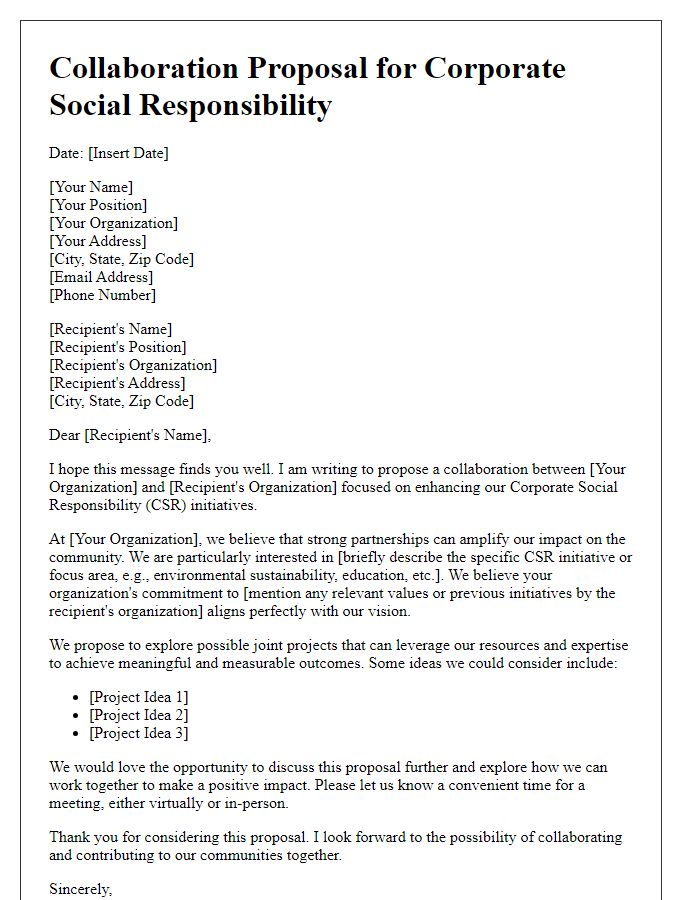
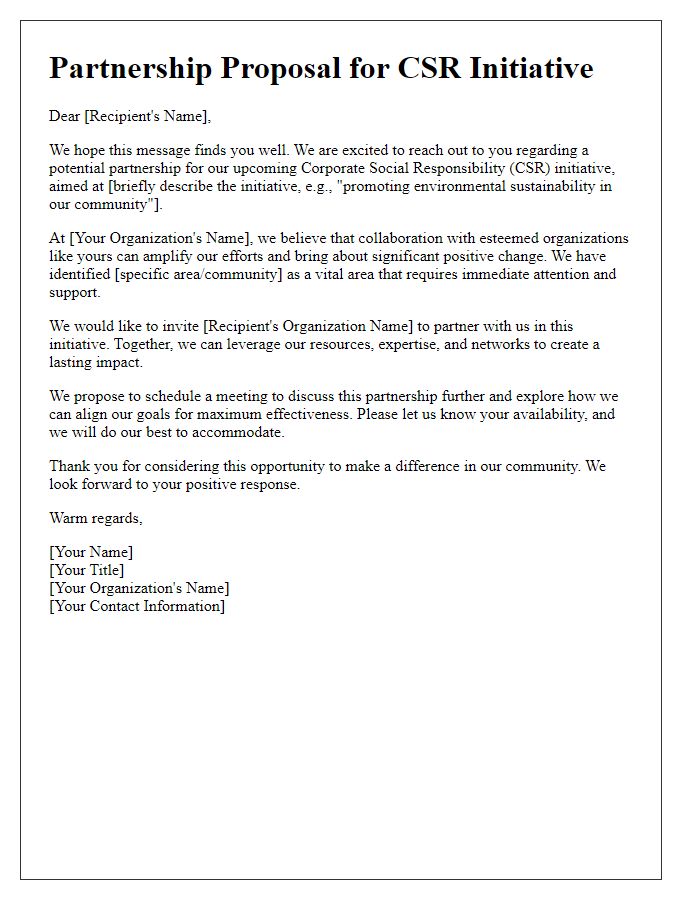
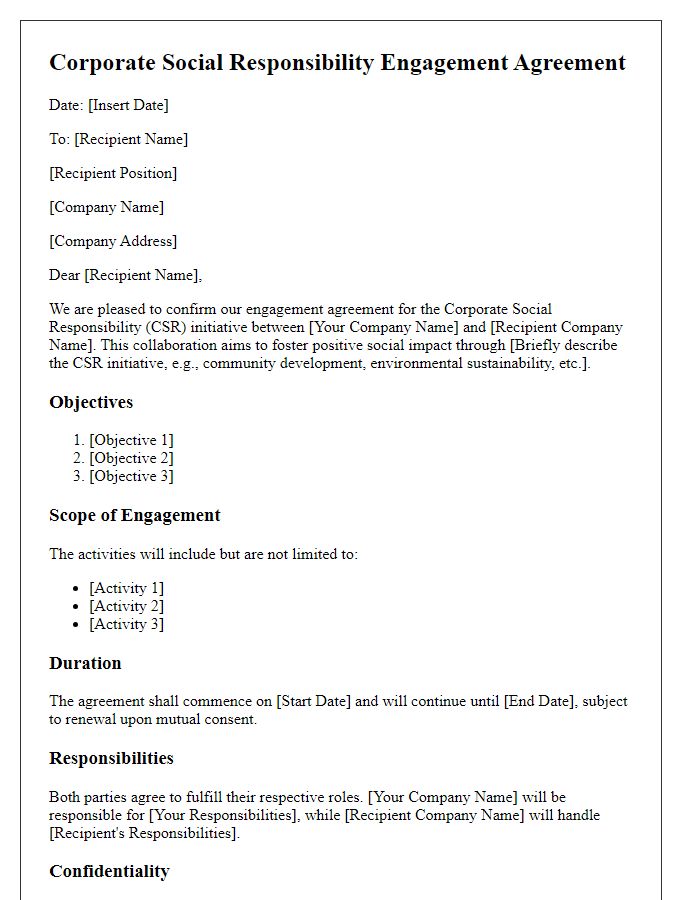
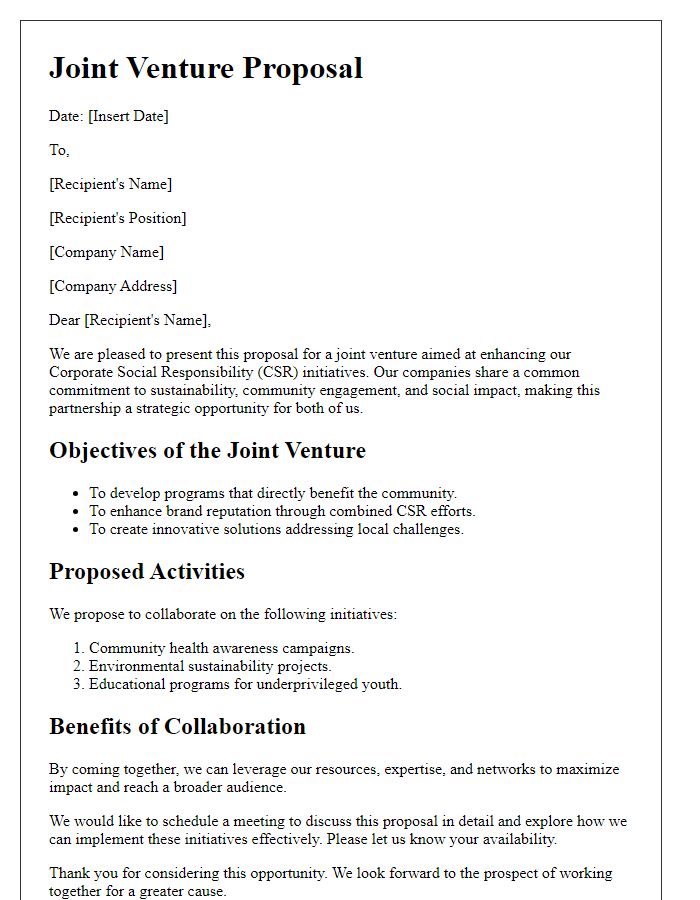
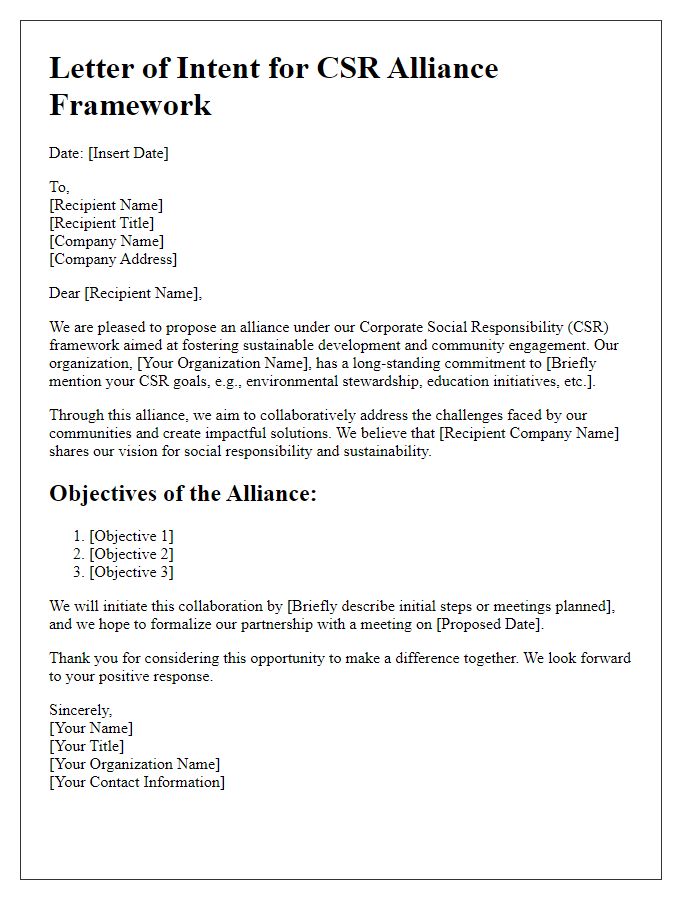
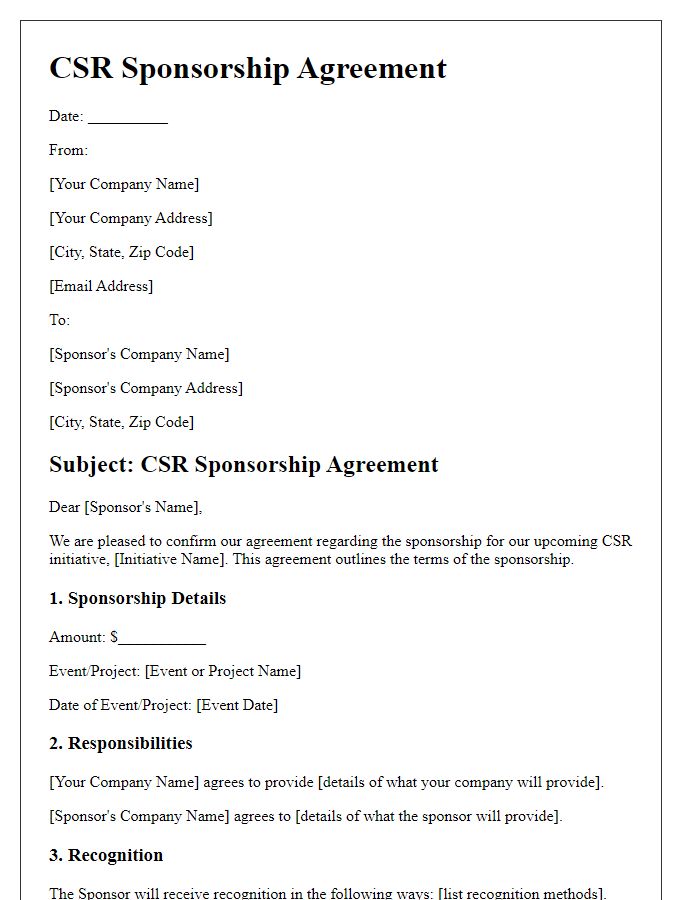
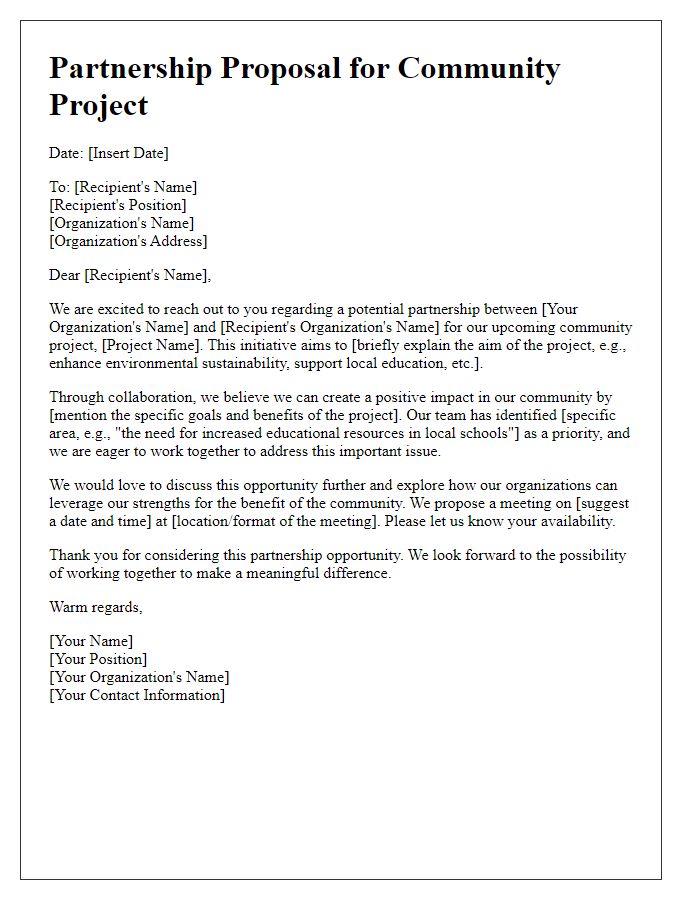
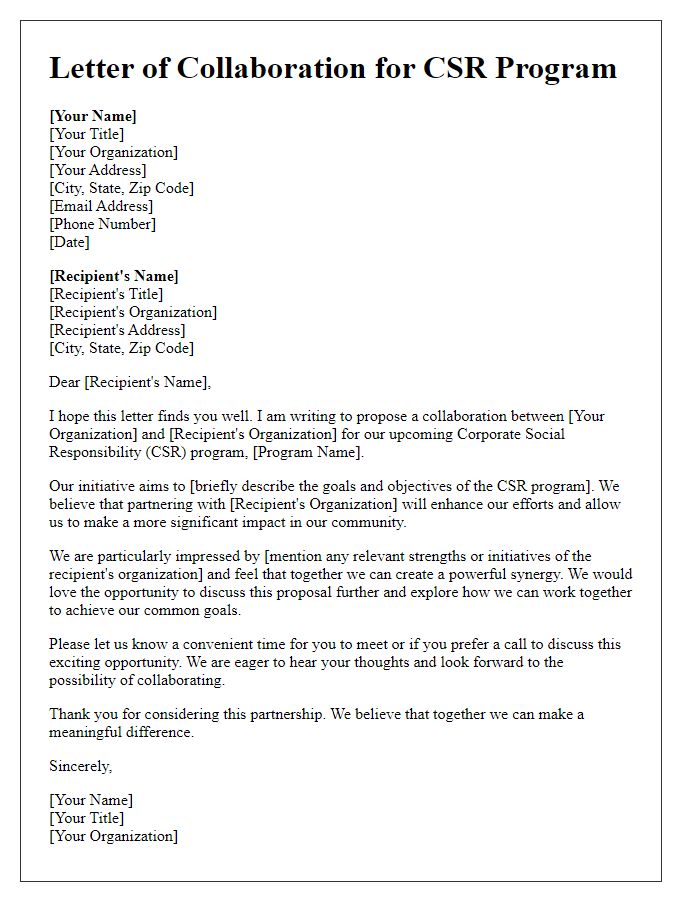
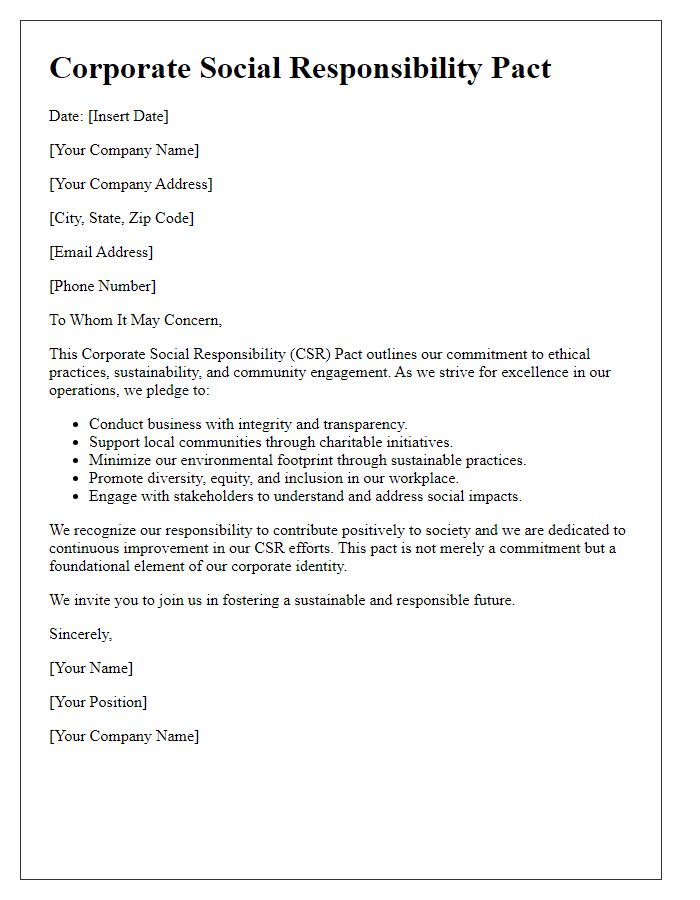
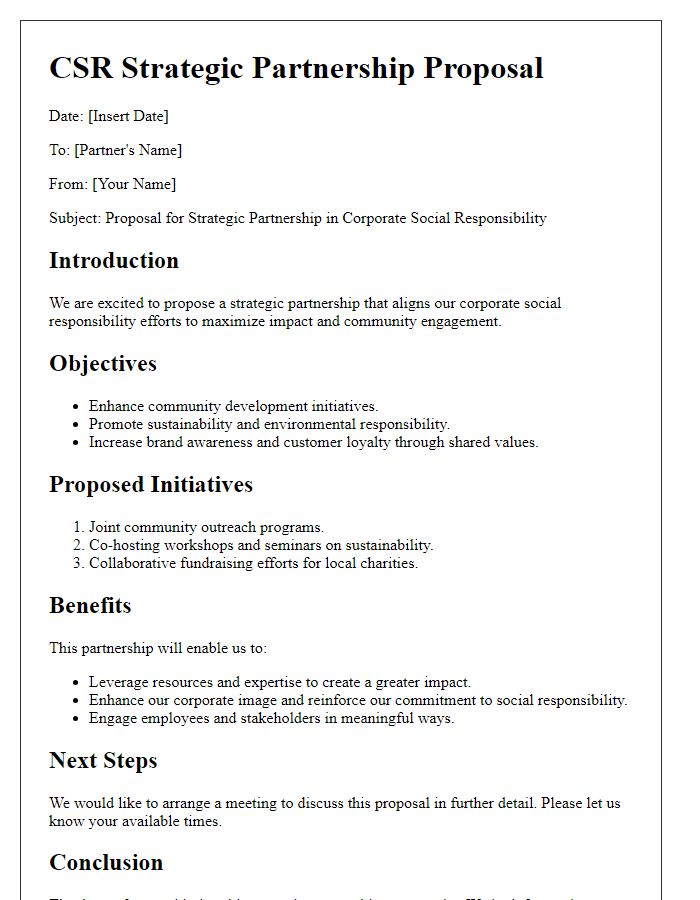


Comments